30 Nov 2023 | Australasian Dental Practice
news > Spectrum > Page 34
Mocom launches new solutions to streamline handpiece maintenance
Upcoming Events... |
|---|
|
Jan 01 2025
TRIOS Care EXCLUSIVE: 1:1 Virtual Session (Book from 1st Jan, 2025)Australia & New Zealand, AUSTRALIA |
|
Feb 28 2025
AIE 2025 - 2nd International Congress - The Art of EndodonticsBolognia, ITALY |
|
Mar 04 2025
Dental Review 2025 - 22nd International Dental ForumMoscow, RUSSIA |
|
Mar 12 2025
|
|
Mar 15 2025
Mastering Your Practice Exit StrategySydney, AUSTRALIA |
|
Mar 18 2025
TRIOS Café Webinar - A-Z Cosmetic Workflow with TRIOSAustralia & New Zealand, AUSTRALIA |
|
Mar 19 2025
ITI Congress ColombiaBogota, COLOMBIA |
|
Mar 21 2025
SIDO International Spring MeetingFlorence, ITALY |
|
Mar 21 2025
ITI Congress UK & IrelandBirmingham, UNITED KINGDOM |
|
Mar 22 2025
|
|
Mar 24 2025
31st Global Dentists and Pediatric Dentistry Annual MeetingDubai, UNITED ARAB EMIRATES |
|
Mar 25 2025
IDS 2025Cologne, GERMANY |
|
Mar 29 2025
Mastering Your Practice Exit StrategyMelbourne, AUSTRALIA |
|
Apr 02 2025
Functional Dentistry Congress 2025Kyoto, JAPAN |
|
Apr 10 2025
New Orleans Dental Conference and LDA Annual Session 2025New Orleans, USA |
|
Apr 12 2025
ITI Congress Southern AfricaCape Town, REPUBLIC OF SOUTH AFRICA |
|
Apr 15 2025
Belarus Medica 2025 - 30th International Medical ForumMinsk, BELARUS |
|
Apr 15 2025
|
|
Apr 17 2025
Dental Forum 2025London, UNITED KINGDOM |
|
May 01 2025
IAO Annual Meeting 2025 - International Association for OrthodonticsWashington D.C., USA |
|
May 08 2025
PNDC 2025Seattle, USA |
|
May 08 2025
39th Australian Dental CongressPerth, AUSTRALIA |
|
May 08 2025
TDA Meeting 2025San Antonio, USA |
|
May 12 2025
APDC 2025 - 46th Asia Pacific Dental CongressManila, PHILIPPINES |
|
May 14 2025
CSDA's 158th Charter Oak Dental MeetingUncasville, USA |
|
May 15 2025
NCDS 2025Myrtle Beach, USA |
|
May 16 2025
BDA 2025Birmingham, UNITED KINGDOM |
|
May 20 2025
GalMED 2025Lviv, UKRAINE |
|
May 21 2025
Dentima Krasnodar 2025Krasnodar, RUSSIA |
|
May 22 2025
C.O Life SummitBarranquilla, COLOMBIA |
|
May 22 2025
ICOMS 2025Singapore, SINGAPORE |
|
May 23 2025
Famdent Show Mumbai 2025Mumbai, INDIA |
|
May 26 2025
|
|
May 28 2025
|
|
May 28 2025
Buldental - Bulmedica 2025Sofia, BULGARIA |
|
May 29 2025
CUSCO 2025Urubamba, PERU |
|
May 30 2025
Nobel Biocare Global Symposium 2025Las Vegas, USA |
|
Jun 07 2025
Mastering Your Practice Exit StrategyBrisbane, AUSTRALIA |
|
Jun 09 2025
|
|
Jun 10 2025
PACK EXPO Southeast 2025Guadalajara, MEXICO |
|
Jun 11 2025
|
|
Jun 20 2025
Scottish Dental Show 2025Glasgow, UNITED KINGDOM |
|
Jun 21 2025
Mastering Your Practice Exit StrategyAdelaide, AUSTRALIA |
|
Jun 25 2025
IADR/PER 2025 - 103rd General Session & Exhibition of the IADRBarcelona, SPAIN |
|
Jun 27 2025
ICOI Asia Pacific Congress 2025Deagu, KOREA, SOUTH |
|
Jul 22 2025
MIDS 2025 - 8th Malaysia International Dental ShowPetaling Jaya, MALAYSIA |
|
Aug 01 2025
Digital Dentistry & Dental Technology 2025Sydney, AUSTRALIA |
|
Aug 07 2025
IDEX Egypt and Africa 2025Cairo, EGYPT |
|
Aug 07 2025
IndoHealthcare Expo 2025Jakarta, INDONESIA |
|
Aug 22 2025
HKIDEAS 2025Hong Kong, HONG KONG |
|
Aug 28 2025
ABSO Meeting 2025Hamilton Island, AUSTRALIA |
|
Sep 03 2025
AAPD 2025Kuta, INDONESIA |
|
Sep 09 2025
WID 2025 - Vienna International Dental ExhibitionVienna, AUSTRIA |
|
Sep 12 2025
|
|
Sep 13 2025
Mastering Your Practice Exit StrategySydney, AUSTRALIA |
|
Sep 17 2025
PharMed Cambodia 2025Phnom Penh, CAMBODIA |
|
Sep 19 2025
IADR 2025 - Asia/Pacific Region Annual MeetingNew Delhi, INDIA |
|
Sep 20 2025
Mastering Your Practice Exit StrategyMelbourne, AUSTRALIA |
|
Sep 25 2025
28th International Dental CongressDiyarbakir, TURKEY |
|
Sep 29 2025
PACK EXPO Las Vegas 2025Las Vegas, USA |
|
Oct 02 2025
IAO 2025Padova, ITALY |
|
Oct 02 2025
ITI Congress BrazilRio de Janeiro, BRAZIL |
|
Oct 09 2025
Pragodent 2025Prague, CZECH REPUBLIC |
|
Oct 15 2025
AAP 2025 - American Academy of PeriodontologyToronto, CANADA |
|
Oct 16 2025
Italian Dental Show - Colloquium Dental 2025Brescia, ITALY |
|
Oct 16 2025
DDS Global Congress 2025Venice, ITALY |
|
Oct 16 2025
ADOHTA-DHAA 2025 National CongressGold Coast, AUSTRALIA |
|
Oct 24 2025
National Osteology Symposium 2025Florence, ITALY |
|
Nov 05 2025
ITI Congress MexicoMérida, MEXICO |
|
Nov 06 2025
|
|
Nov 07 2025
ITI Congress ItalyBologna, ITALY |
|
Nov 08 2025
CDSS 2025Singapore, SINGAPORE |
|
Nov 14 2025
IDEC 2025Jakarta, INDONESIA |
|
Nov 20 2025
MCDC 2025 - Annual Mid-Continent Dental CongressSt Louis, USA |
|
Nov 28 2025
Greater New York Dental Meeting 2025 (GNYDM) - 101st Annual SessionNew York City, USA |
|
Dec 05 2025
8th Dental Expo 2025Lahore, PAKISTAN |
|
Mar 20 2026
ASO 2026 - The 30th Australian Orthodontic CongressMelbourne, AUSTRALIA |
|
Apr 17 2026
IDEM Singapore 2026Singapore, SINGAPORE |
|
Nov 27 2026
Greater New York Dental Meeting 2026 (GNYDM) - 102nd Annual SessionNew York City, USA |
|
Nov 26 2027
Greater New York Dental Meeting 2027 (GNYDM) - 103rd Annual SessionNew York City, USA |
|
Nov 24 2028
Greater New York Dental Meeting 2028 (GNYDM) - 104th Annual SessionNew York City, USA |







Friday, 28 February, 2025